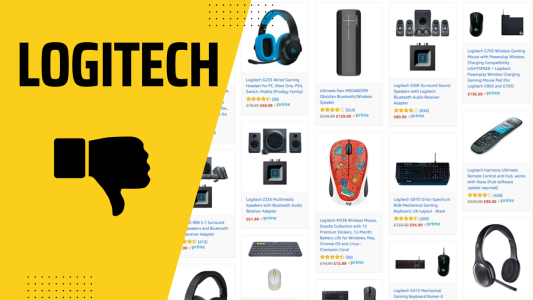7 Benefits of CRM in e-commerce - Dispatch Weekly
May 22, 2018 - Reading time: 8 minutes

If you are involved in any kind of e-commerce business, you probably know that is a CRM. However, let’s start with the basics. After all, to understand something fully, you need all the details.
CRM is short for Customer Relationship Management it was pioneered by Robert and Kate Kestnbaum, who collected and analyzed customer information back in 1980s. Using statistical modeling, that data was then used to help customize communications with other potential customers.
Simply put, it is a software that helps you manage all interactions between you (your store) and your customers. Its main purpose is time-saving and communication facilitation.
With a proper CRM system, you offer your customers excellence of service, sensible solutions, and a better overall shopping experience. A consumer brand considers a CRM valuable if includes marketing tools, technical support possibilities, organizational tools, and a contact database.
E-commerce and CRM – A perfect match?
CRM lets you get a proper insight on your customer base. With enough data about them, you can increase your sales and the efficiency of your support team. You may be successful without it, but CRM will only take you a step up against the competition.
All of the respected CRM systems let you integrate them with third-party software. This lets you easily establish connections between all units in a company. Deliveries, accounting, and banking records – all connected. Suppliers, contractors, and warehouse – in a constant state of relation.
A well-set CRM system enables better logistics and efficient product management. Furthermore, it eases payment tracking, as well as deliveries and refunds. CRM is essentially your right hand when it comes to running a profitable e-commerce business. For companies that are still on the fence about CRM, it’s worth considering the benefits of an ecommerce CRM system can offer.
1. Understanding your customers in e-commerce with CRM
Many of us have experienced the flood of sponsored ads on social media. Surprisingly enough, most of them are relevant to our taste and needs. This is possible due to identifiable search patterns. Social media uses these patterns to show us the most suitable ads for us.
A customer retention CRM gives you the opportunity to do just this. With constant collecting of user data, it lets you define different segments of your customer base. If a CRM system “finds” that a certain customer likes a designated product, why not catalyze a purchase with that knowledge?
Demographic indicators (gender/nationality), popular interests, spending history – all of those are variables in a CRM database. As retention marketing is teaching us, if you know your customer’s purchase habits, you will have an easier time of retaining them. And customer retention lies at the core of profitable long-term businesses.
2. CRM knows which information is important in e-commerce
Do you have any idea how many of your customers visit your store without buying anything? “Ah, they will come back, they just forgot to check out the item”, some would say. But every forgotten shopping cart is a possible purchase.
The average rate of abandoned shopping carts is ~69% (Baymard). Imagine if you could convert even half of those visits in to repeat customers. With CRM, you can take the needed actions to do that. You can act on CRM data to provoke more purchases with kind reminders to your customers. They liked the item, you just need to push them a little towards it.
3. Time is money. And CRM gives you more free time
Studies show that, on average, sales agents spend as little as 11% of their time on active selling. Most of their work day is filled with administrative and problem-solving. With CRM, you can boost their selling time with ease.
A custom-set CRM for e-commerce automates pretty well on its own. It can carry out self-service processes, so your employees can have more time to spend on actual selling. Your workflow needs to be efficient if you want to be on top of the competition. The usage of CRM enables smarter solutions and more profits in the long run.
4. CRM and Social Media
We all know e-commerce and social media go hand in hand. Every successful e-commerce has a set of social media pages to promote their products. A large percentage of your e-commerce traffic erupts from social media. This is why you need a good monitoring tool to keep track of all important data.
Customer queries generate the need for proper answers. Your responses to them will determine customer’s judgment of your customer service. And 42% of these customers expect an under-60-minutes response time. If you can’t manage that, you are risking the state of your customer base.
5. CRM as the master of detailed reports and forecasts
A smart CRM system can measure the effectiveness of all processes in your e-commerce business. This information has a crucial influence on objective completion and budget planning. CRM software offers various reporting options, which show what works and what doesn’t in your e-commerce store.
A successful business needs to cut down on ineffective actions, while the desirable count of them would be 0. CRM records can give you ROI and revenue predictions. In addition, they work as a council for areas that need improvement. And improving your e-commerce business to the maximum would be a top priority, right?
6. Better customer loyalty levels in e-commerce via CRM
CRM systems offer not only tracking options but also security improvement. And an accurate and more secure hosting is what every customer desires. With CRM, you can detect and deny fraudulent transactions more effectively. It also adds an easier checkout process, just to top it off.
One of the typical, and maybe most used, customer question is – “Where did my order go?”. You can please your clients with an intuitive and responsive order status. Furthermore, CRM adds a comprehensive history look up, so they can check and track all of their purchases.
7. CRM is the accountant of the e-commerce world
It may sound a bit overwhelming, but it is true. Your e-commerce shop probably supports multiple payment channels. And this is understandable. Viewing and analyzing received payments from different sources can, and almost always is, difficult.

With the proper CRM, managing invoicing, billing, and payment failures is quite simple. Some CRM can even be integrated with a payment gateway to make it even easier. What is more, CRM has advanced analytics options, which track payment trends.
With this information, you can define your best revenue sources and highest value customers. You can then adapt your services to suit them better. Everything for the customer, right?
This article was written in collaboration with our friends at metrilo.com. All thoughts and opinions remain my own.

DW Staff
David Lintott is the Editor-in-Chief, leading our team of talented freelance journalists. He specializes in covering culture, sport, and society. Originally from the decaying seaside town of Eastbourne, he attributes his insightful world-weariness to his roots in this unique setting.

_1.jpg)


